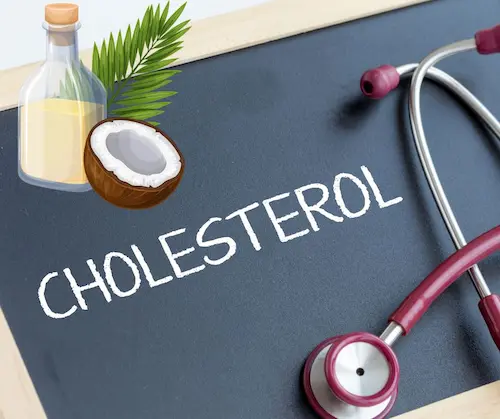Coconut oil has long been a staple in Kerala kitchens — not just for its rich aroma and flavor, but for the way it nourishes our bodies. But what exactly is in coconut oil? Is it high in fat? Is it healthy? And why do people say it’s cholesterol-free?
Let’s break it down — clearly and truthfully — so you can feel confident about what you’re putting in your body (or your baby’s hair!).
What’s in Coconut Oil? A Closer Look at the Nutrition
✅ Nutrition Facts (Per 1 Tablespoon / 13.6 grams)
| Nutrient | Amount | Function |
|---|---|---|
| Calories | 117 kcal | Energy source |
| Total Fat | 13.5 g | Main nutrient |
| • Saturated Fat | 11.2 g | Provides MCTs (medium-chain triglycerides) |
| • Monounsaturated Fat | 0.8 g | Heart-friendly fat |
| • Polyunsaturated Fat | 0.2 g | Essential for cell health |
| Carbohydrates | 0 g | None |
| Protein | 0 g | None |
| Cholesterol | 0 mg | Plant-based oils have no cholesterol |
| Fiber | 0 g | Not a source of fiber |
| Vitamins & Minerals | Trace amounts of Vitamin E, Iron | Antioxidant properties |
Coconut oil is 100% fat — but not all fat is bad. The type of fat matters more than the amount.
So… Why Is Coconut Oil Cholesterol-Free?
Let’s clear up a common misconception:

Coconut oil is cholesterol-free not because it’s low in fat — but because it comes from a plant.
Here’s the science:
Cholesterol is only found in animal products (meat, eggs, dairy).
Plant-based oils, like coconut, olive, or sunflower oil, contain zero cholesterol.
So even though coconut oil has saturated fats, it doesn’t contain cholesterol itself.
👉 But the body processes saturated fats differently based on the type. Coconut oil is rich in medium-chain triglycerides (MCTs) — these are quick-burning fats that the body uses for energy rather than storing as fat.
